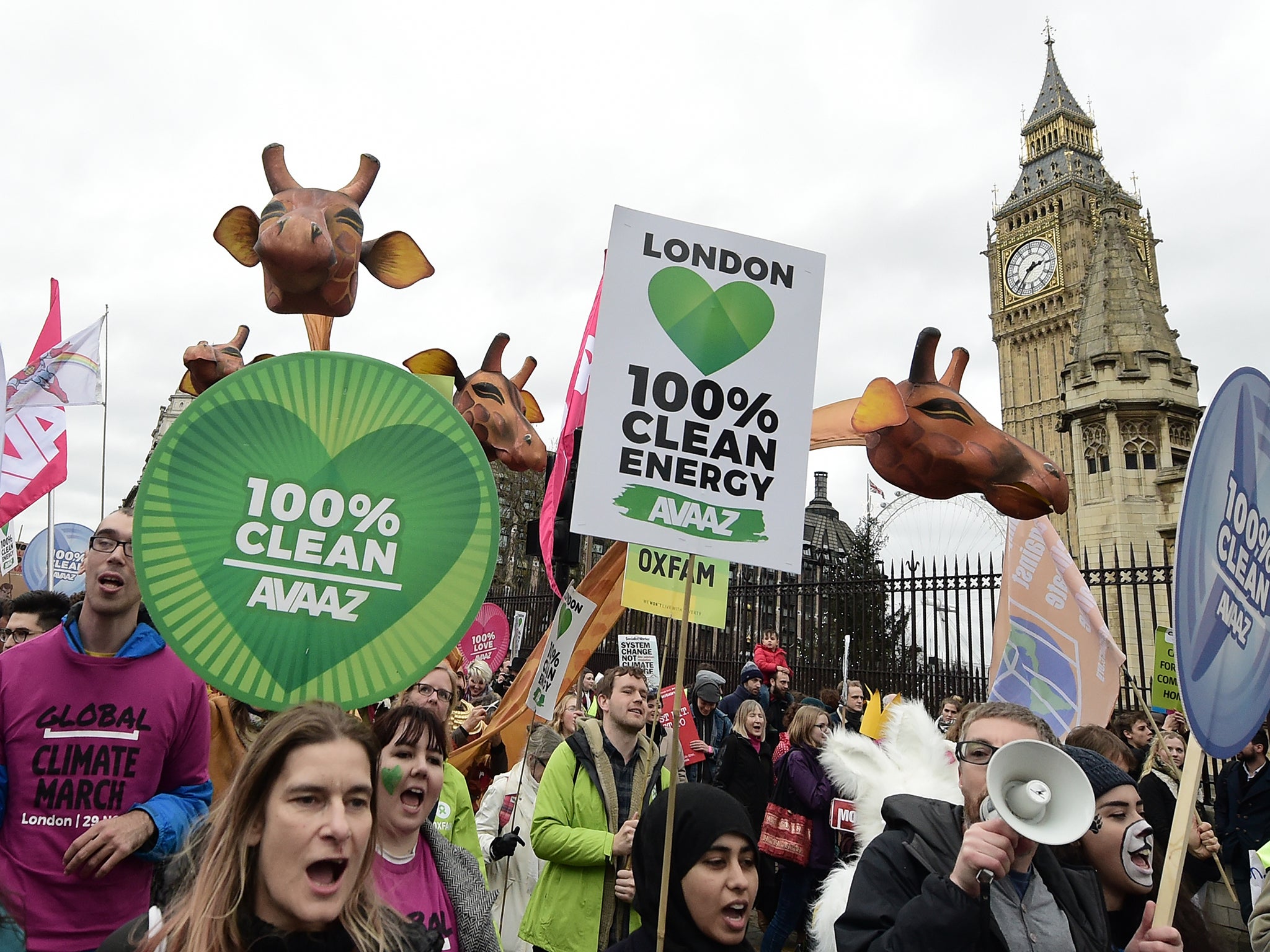Climate change: Students can utilise socioeconomic and ethnic backgrounds present on university campuses to bring about environmental change
University journalism, on-campus bloggers, acceptance of the right to protest outside campus buildings, and the ability to hold assemblies are all accessible vehicles of protest students should not waste

Climate change is undoubtedly the most pivotal issue facing our generation. Students have so much to gain from tackling climate change: experience in political organisations and societies, friends made from those organisations, passion, and, above all, a feeling of ‘moral righteousness’.
The pursuit of climate justice does not need to set a newcomer to the environmental movement apart from a longstanding campaigner; everyone should and can get involved, and it’s the diverse and inclusive natures of university campuses that would allow this to happen.
The strong political presence on UK campuses does not solely include parliamentary parties, but also pressure groups such as Amnesty International and Oxfam. These organisations tirelessly campaign for climate and social justice while retaining the fun, social culture of student life, and it is this element of such organisations that manages to draw in new students year after year.
There is no snobbery, no premise that one can only get involved if already used to direct action, pressure tactics, or campaigning – everyone can find their niche within the organisations to tackle issues close to them. I had, until very recently, considered student politics to be an exclusive, tight-knit bubble - a collection of dreadlocked middle-class kids obsessed with hemp and jungle music, the type to hand out flyers about polar bears outside the students’ union building and snicker when asked a question about their actual intentions for change.
Climate change protests around the world
Show all 25However, it seems I’d been grossly judgemental and way too invested in appearance when I visited Conference of Youth (#COY11) in Paris last month, a precursor to the international climate talks being held in the city between world leaders and delegates for COP21. The conference was surprisingly informal and quite inspiring with young people attending from all corners of the globe coming to meet and discuss how our generation can halt emissions, stop climate change, and create a more sustainable lifestyle in order to to prolong our life on Earth as we know it.
Attendees ranged from Indonesian schoolchildren - who had managed to drastically alter their education system by campaigning to be make it more environmentally friendly and inclusive - to totally committed environmentalists who had stopped using mass produced toothpaste and only showered outdoors with a shower that featured a perpetuating cycle of water.
Elsewhere, as a newcomer and person less able to readily access these solutions, I saw a different side to COY and took from it a different message: tackling climate change does not need to mean severely restricting your diet or usage of certain materials because those options - while positive - are obviously not viable for everyone due to financial situations or individual health.
The most important thing is discourse and promoting a discussion about climate change between a wide range of people to completely integrating it as an issue into the public consciousness. Students would be particularly helpful if doing this because of the varied socioeconomic and ethnic backgrounds present on university campuses.
Students could even be persuaded to get involved with campaigning or debate from an ‘experience angle’ - leadership roles in political clubs and societies look great on a CV and would be invaluable experience for any student who wants to progress into graduate schemes or employment. Students have such accessible vehicles of protest that it seems sad to waste them: university journalism, on-campus bloggers, acceptance of the right to protest outside campus buildings, and to hold assemblies.
Climate change is the most decisive issue facing the modern world - and it is our generation that must tackle it. This generation of students - whether they be medics, lawyers, philosophers, or historians - must uphold this responsibility and begin the campaign against climate change while still at university in order to help reshape the public consciousness and to fully immerse themselves in its issues and solutions.
To begin, students can visit their students’ union and sign up to a variety of clubs and societies with an environmentally centric ethos: Green Action and Green Party, Amnesty International, and Oxfam are just a few on offer on my own campus at the University of Leeds. Following membership, get your sleeves rolled up and get involved.
Also, be sure to go to socials, meetings, and guest lectures, and write about it your experiences. Tell your friends about it, get involved in direct action, and utilise students’ union capacity to send young delegates to conferences and protests in order to attend for free or for a cheaper price.
Finally, live through what you’ve managed to learn from each step and start with small steps such as recycling and carry on moving towards a more sustainable lifestyle. A different diet, less unnecessary shopping - even something as small as printing double-sided will all make a difference.
There are so many ways to immerse yourself in student politics centred around climate justice - it’s just about finding your niche and passion within these channels to eventually get you and the rest of our generation on its way to being more environmentally friendly.
Twitter: @poppierosee
Subscribe to Independent Premium to bookmark this article
Want to bookmark your favourite articles and stories to read or reference later? Start your Independent Premium subscription today.



.jpg?quality=75&width=230&auto=webp)


Join our commenting forum
Join thought-provoking conversations, follow other Independent readers and see their replies
Comments